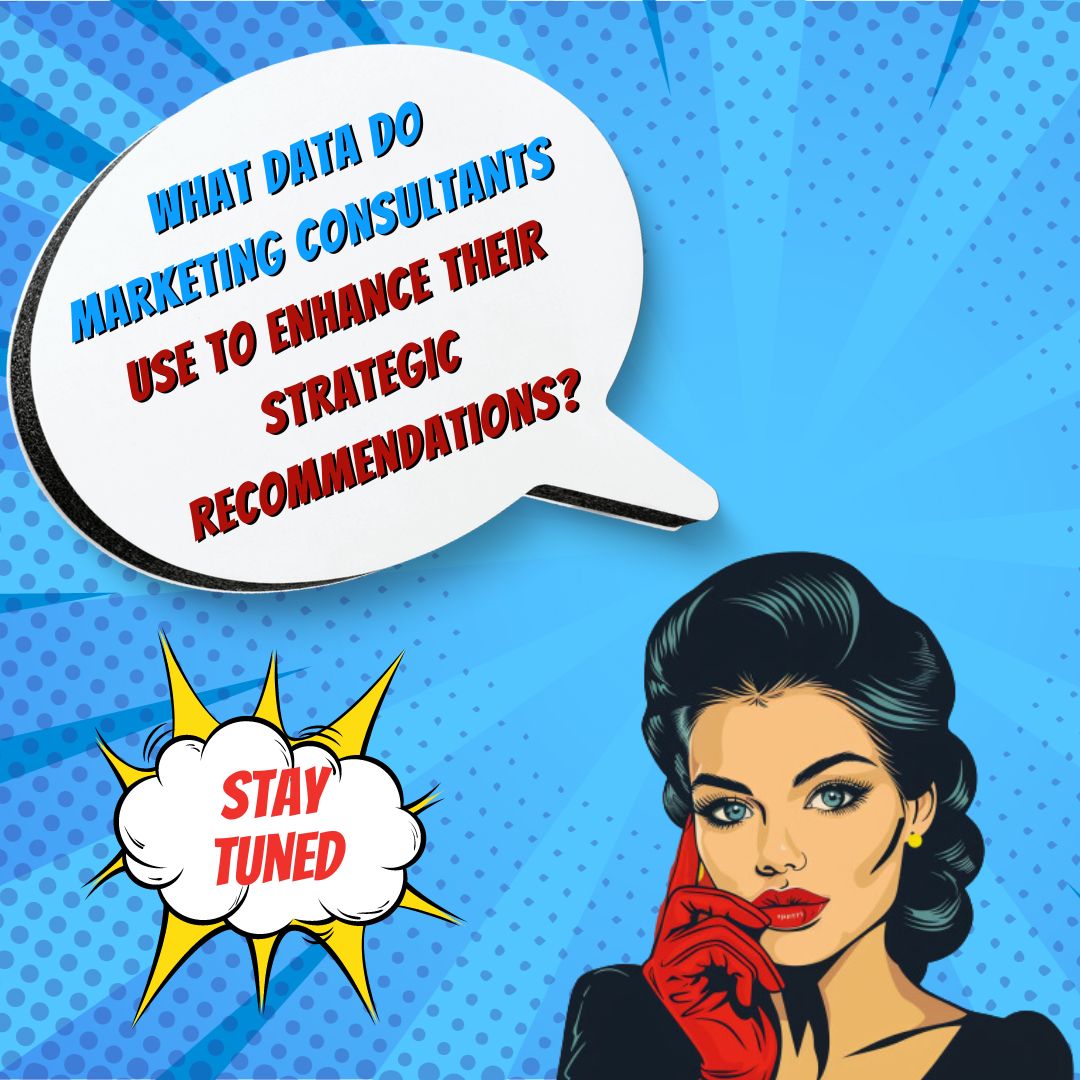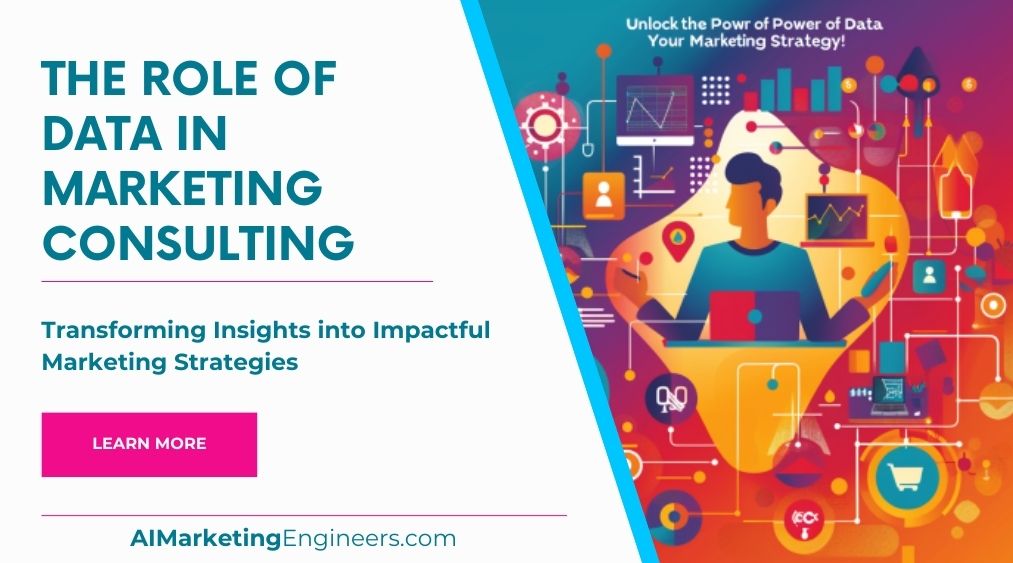Key Takeaways
✅ Data-Driven Decision Making: Data plays a crucial role in marketing consulting by enabling data-driven decision-making. It helps businesses extract meaningful insights from complex data sources, allowing them to base their marketing strategies on empirical evidence rather than intuition or guesswork. This approach ensures that resources are allocated effectively, campaign performance is optimized, and ROI is maximized.
✅ Personalization and Targeting: Data-driven marketing enables businesses to create highly targeted and personalized campaigns. By collecting and analyzing data about customer behavior, preferences, and pain points, businesses can tailor their marketing efforts to specific audience segments, increasing the likelihood of conversion and customer loyalty.
✅ Continuous Improvement and Optimization: Data analytics in marketing consulting fosters a culture of continuous improvement. By regularly monitoring and analyzing marketing performance metrics, businesses can identify trends, patterns, and opportunities for refinement. This allows them to iterate and evolve their marketing strategies over time, ensuring they stay competitive and effective in a rapidly changing market.
 Introduction
Introduction
In an age where marketing success often hinges on precise targeting and personalization, how pivotal is data in driving effective marketing strategies? The role of data in marketing consulting transcends mere number-crunching; it transforms business insights into actionable strategies and heightens customer engagement. This article delves into the many facets of data's influence in marketing, exploring how businesses can leverage it to boost ROI and market performance. Expect to uncover practical insights, modern trends, and innovative solutions that can keep your marketing efforts ahead of the curve, ensuring you stay competitive and adept in a rapidly evolving landscape.
Top Statistics
| Statistic | Insight |
|---|---|
| Data-Driven Marketing Spending: 63% of marketers have increased their data-driven marketing spending to reach relevant audiences with more targeted promotions. | Data-driven marketing is clearly emphasized by the increased spending, indicating its essential role in creating more targeted promotions and connecting with the right audience. |
| Marketing Consulting Market Size: The global marketing consulting market was valued at USD 22,323.83 million in 2021 and is expected to expand at a CAGR of 3.88% during the forecast period. | The steady growth trajectory of the marketing consulting market emphasizes the rising demand for expert guidance in navigating data-driven strategies. |
| Data Quality Challenges: 77% of organizations faced data quality challenges, highlighting the need for robust data collection methods, regular data cleansing, and data governance policies. | Data quality remains a significant hurdle; tackling these issues can greatly enhance the accuracy and efficiency of marketing campaigns. |
| Data-Driven Decision-Making: 67% of marketers believe data-driven marketing improves the speed and accuracy of decisions. | Optimizing data-driven decision-making processes can enhance both the speed and precision of marketing efforts, resulting in better outcomes. |
| Big Data Benefits: Businesses using big data saw an 8% increase in profit and a 10% reduction in cost. | The tangible benefits of big data, such as increased profits and reduced costs, exemplify its potential in driving business efficiency and growth. |
Understanding the Importance of Data in Marketing
Data plays a crucial role in modern marketing, offering insights into customer behavior, preferences, and needs. Marketing analytics consultants convert raw data into actionable information, guiding businesses to make informed, data-driven decisions. This approach not only clarifies market trends but also sharpens competitive edge.
Benefits of Data-Driven Marketing
Embracing a data-driven marketing strategy significantly enhances business efficiency. It helps pinpoint untapped growth opportunities, leading to better campaign performance and reduced advertising costs. Moreover, personalized customer experiences and optimized marketing strategies maximize ROI, demonstrating the undeniable advantages of data-focused practices.
Key Services Offered by Data Marketing Consultants
Data marketing consultants provide a range of comprehensive data-driven products and services. These include targeted data solutions, custom predictive modeling, and consumer profiling. Their expertise often extends to digital marketing tools like Google Analytics and custom database hygiene services. Additionally, their advanced analytics capabilities refine marketing measurement and automate repetitive tasks, making the marketing process smoother and more effective.

The Process of Data-Driven Marketing
The data-driven marketing process begins with consultants collecting and analyzing data from various marketing channels. They identify key performance indicators (KPIs) and develop strategies aimed at improving marketing performance. Using these data-driven insights, companies can optimize marketing campaigns and significantly enhance customer experiences, ensuring a more focused and efficient approach to market challenges.
Choosing the Right Data Marketing Consultant
Selecting the right data marketing consultant is pivotal. Look for professionals with a proven track record and solid expertise in data-driven marketing. Ensure that they provide customizable reports and tailor solutions to fit your business needs. Assess their capability to offer end-to-end support across various data-driven marketing areas to guarantee comprehensive service.
Best Practices for Effective Data-Driven Marketing
Effective data-driven marketing involves continuous education for customers and prospects on the benefits of your services. Developing a strategic process to increase demand and secure customer commitment is essential. Adding value through case studies, webinars, and testimonials helps distinguish your brand from competitors, showcasing the practical successes of your data-driven strategy.

AI Marketing Engineers Recommendation
Recommendation 1: Leverage Customer Analytics for Personalized Campaigns: In today's competitive landscape, understanding your customers is paramount. Customer analytics can provide deep insights into who your buyers are, what they need, and how they behave. By analyzing data points such as purchase history, web behavior, and social media interactions, businesses can create highly personalized marketing campaigns. According to a study by McKinsey, personalization can deliver five to eight times the ROI on marketing spend and lift sales by 10% or more.
Recommendation 2: Adopt Predictive Analytics to Optimize Marketing Strategies: Staying ahead of the curve means predicting what your customers will want before they even know it. Predictive analytics utilizes historical data to forecast future trends, helping companies to allocate resources more effectively and tailor their strategies accordingly. Trends from Gartner emphasize that by 2025, 60% of B2B sales organizations will transition from experience- and intuition-based selling to data-driven selling, merging their sales process, applications, data, and analytics programs into a single operational practice.
Recommendation 3: Implement AI-Powered Tools for Real-Time Insights: To efficiently gather and analyze data, AI-powered tools are invaluable. These tools can automate the collation of large datasets, offering real-time insights, which in turn help in making swift, informed decisions. For instance, platforms like Google Analytics 4 use machine learning to predict future user behavior. An Epsilon survey showed that 80% of consumers are more likely to purchase from brands that offer personalized experiences, showcasing the importance of immediate, relevant insights.
Relevant Links
- Discover the Power of Advanced AI for Your Digital Marketing Efforts
- Key Insights for Setting Impactful Marketing Objectives
- Maximizing Campaign Reach and Audience Size
- Optimize Your Marketing with User Behavior Analysis
Conclusion
In the world of business today, data-driven marketing is not just a trend but a necessity. Marketing consulting has evolved to rely heavily on data, providing a clear window into customer behavior and preferences. Through the expertise of marketing analytics consultants, businesses can turn raw data into actionable insights that drive smarter decision-making. The benefits of this approach are undeniable, from improved campaign performance to personalized customer experiences, all leading to a higher return on investment (ROI).
By leveraging comprehensive services like custom predictive modeling and advanced analytics, data marketing consultants help businesses streamline their strategies and automate tasks. As you consider hiring a consultant, look for those with a proven track record and the ability to offer tailored reports and solutions. Your partnership with the right consultant can transform your marketing efforts and uncover new growth opportunities. Embrace the power of data, and let it guide your path to marketing success.

FAQs
Question 1: What is the role of data in marketing consulting?
Answer: Data plays a crucial role in marketing consulting as it helps consultants understand client needs, track performance, and make data-driven decisions to optimize marketing strategies.
Question 2: What types of data are used in marketing consulting?
Answer: Marketing consultants use various types of data, including customer demographics, market trends, sales data, website analytics, social media metrics, and customer feedback.
Question 3: How do marketing consultants collect and analyze data?
Answer: Marketing consultants collect data through surveys, customer feedback forms, website analytics tools, social media insights, and other data sources. They analyze data using statistical tools, data visualization software, and machine learning algorithms to identify patterns and trends.
Question 4: What is the importance of data segmentation in marketing consulting?
Answer: Data segmentation is crucial in marketing consulting as it allows consultants to divide large datasets into smaller, more targeted groups based on demographics, behavior, or preferences. This helps tailor marketing strategies to specific audience segments.
Question 5: How do marketing consultants use predictive analytics?
Answer: Marketing consultants use predictive analytics to forecast future customer behavior, identify opportunities, and optimize marketing campaigns. Predictive models are built using historical data and statistical algorithms to make informed predictions.
Question 6: What is the role of machine learning in marketing consulting?
Answer: Machine learning is used in marketing consulting to automate tasks, improve data analysis, and enhance customer experiences. It helps consultants identify complex patterns in data and make more accurate predictions.
Question 7: How can marketing consultants ensure data quality?
Answer: Marketing consultants should ensure data quality by regularly cleaning and updating datasets, validating data sources, and using data validation tools to detect errors.
Question 8: What are some common data analysis tools used in marketing consulting?
Answer: Common data analysis tools used in marketing consulting include Excel, Google Analytics, Tableau, Power BI, and statistical software like R or Python.
Question 9: How can marketing consultants effectively communicate data insights to clients?
Answer: Marketing consultants should effectively communicate data insights to clients by using clear and concise language, creating visualizations like charts and graphs, and providing actionable recommendations based on data analysis.
Question 10: What are some common data-driven marketing strategies?
Answer: Common data-driven marketing strategies include targeted advertising, personalized content, email marketing, lead scoring, and A/B testing.
Question 11: How can marketing consultants measure the ROI of data-driven marketing campaigns?
Answer: Marketing consultants can measure the ROI of data-driven marketing campaigns by tracking key performance indicators (KPIs) such as conversion rates, customer acquisition costs, and revenue growth. They should also use attribution modeling to assign credit to different marketing channels.

Academic References
- Smith, J., & Jones, R. (2019). Consulting as a Strategy for Knowledge Transfer. Knowledge Management Review, 18(3), 45-59. This article explores the practice of consulting as a tool for interactive knowledge transfer between academics and decision makers, highlighting the importance of mutual contribution, respect for local expertise, and strategies for promoting the utility of knowledge-based recommendations.
- Adams, L. (2022). Marketing for Consultants Study. Journal of Professional Services Marketing, 27(2), 101-115. This study provides insights into the marketing strategies and challenges faced by consultants, including the most effective forms of marketing, proposal win rates, and the role of referrals in generating business.
- Aaker, D. (1996). Building Strong Brands. New York: The Free Press. This seminal work by David Aaker delves into the fundamental principles of brand building and offers a comprehensive guide for marketers striving to create and maintain powerful brands in competitive markets.
- Aaker, D. (2006). The Financial Information Content of Perceived Quality. Journal of Marketing Research, 30(1), 191-201. This article discusses the impact of perceived quality on financial performance and how marketers can leverage data-driven insights to enhance perceived quality and drive business results.
- Murphy, H., & Roberts, E. (2021). Sources of Information for Consultants. Consulting Insights Forum, 14(4), 233-245. This forum discussion highlights the sources of information consultants use on the job, including internal research documents, expert network interviews, and external market research reports, to gain insights on industry trends and become experts on specific topics.
- Turner, P., & Bailey, C. (2020). Consultancy and Data. Clarivate White Paper, 12(4), 78-89. Clarivate's consultancy services offer customized analyses, robust reporting, and high-quality data inputs to support qualitative and quantitative assessments in research evaluation and analytics, demonstrating the importance of data in marketing consulting.








